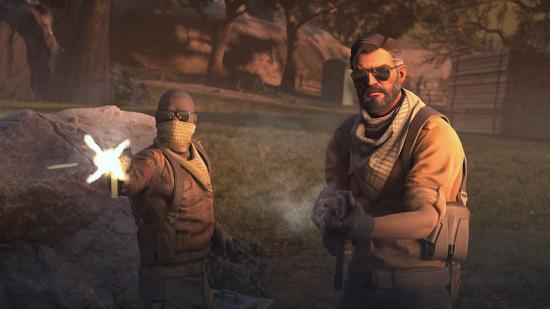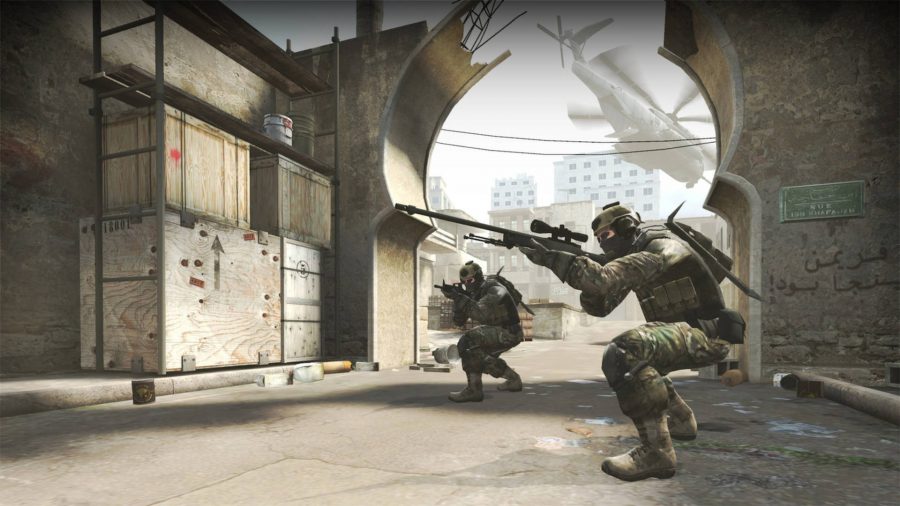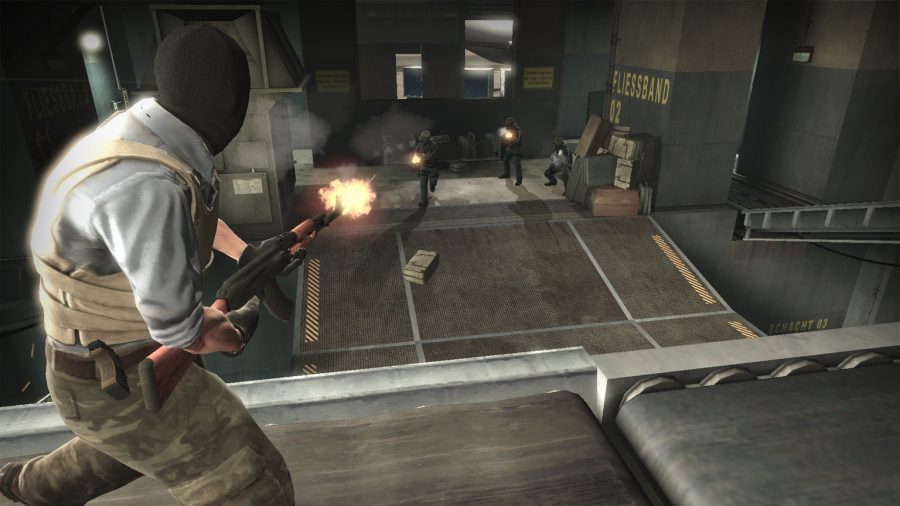Like with any competitive multiplayer game, there’s a big market for cheats in Counter-Strike: Global Offensive. Valve’s timeless first-person shooter has an incredibly high skill ceiling, and some players will resort to using CS:GO cheats or hacks to make their way to the elusive rank of Global Elite.
It can be tempting to cheat when you’re constantly dying to better players, but doing so can lead to some pretty bad repercussions. If you value your Steam account and the ability of playing online multiplayer games with friends, you might want to reconsider. With permanent CS:GO bans and VAC bans on the line, the risks seriously outweigh the benefits of downloading a dodgy script you found online.
Nevertheless the world of cheating in games, and more specifically in CS:GO is fascinating, and we don’t blame you if it’s piqued your interest. So, without further ado, here’s everything you need to know about CS:GO cheats, how to catch a cheater, and what punishments they may face.
What are CS:GO cheats?
There are many different types of cheats that you can install for CS:GO. Some are free and others have to be purchased or subscribed to, but they all do the same thing – provide the user with a competitive advantage. Generally the free cheats are easily detectable by Valve Anti-Cheat System (VAC) and other players, so if you use free cheats that you’ve found somewhere on the internet, then chances are you’re going to wake up shortly with a fairly hefty ban on your account. The paid cheats are harder to detect but Valve works quickly to snuff out new scripts and remove them and the players found to be using it from its servers.
There are also lots of different cheats for CS:GO, and they’re all probably terms you’ve heard from wild accusations in game. Wall hacking is when a player can see the outline of their enemies through walls, aimbots are a bit like aim-assist on console, but can be set to hit every shot or a percentage of the shots fired, spinbots are similar but they allow the cheater to hit shots while spinning around, and mobility hacks allow cheaters to move quicker than usual, clip through walls, or teleport back and forth certain areas.
There are also other cheats, such as removals and radar, which remove the recoil and bullet spread from weapons,and show player locations on your radar. These are also common PUBG hacks.
The most common cheats found in competitive CS:GO servers are wall hacks and aimbots. Most other accusations made in game by other players are false.
CS:GO hacks – how to spot a hacker
It’s easy to accuse someone of hacking when you’re being repeatedly shot in the head whenever you run onto a site, and while it might look curious, consider that they might just be better than you. However, when you think someone might be cheating, the first thing you should always do is check out the replay in GOTV and watch the game from their point of view. If they’re snapping onto heads and hitting crazy flicks time after time, they’re probably using some sort of aim assist. If they’re tracking you through the wall, then they’re probably using wall hacks. The best way to work out if they’re tracking your movement is to use CS:GO’s X-ray function, which will show you player outlines in the replay only.
If you’re still not sure, it’s also worth checking the age of the account. With CS:GO now being free-to-play, the amount of hackers appearing on competitive servers has increased, so you’ll find many more ‘fresh’ accounts making their debut with an incredibly high kill/death ratio.
And, if after all of that, you’re still suspicious, drop them a report and they might be reviewed in the Overwatch system.
What happens to people who cheat in CS:GO?
Cheating in CS:GO is taken very seriously by Valve. Game and account bans have been handed out to hundreds of thousands of players since the game’s launch in 2012. With dedicated deep-learning systems used to crack new and unauthorised scripts and an ever-growing competitive player base, there’s never been a worse time to start cheating in CS:GO.
When an account is reported, it is usually sent to Overwatch for review. Overwatch is an in-game replay review system that allows experienced members of the CS:GO community, dubbed ‘investigators’, to review reports of griefing, cheating, and abuse, and determine if any punishment should be handed out. Generally investigators are asked to watch eight rounds of gameplay before being asked for their judgement.
If multiple investigators reviewing the same case agree that a punishment should be dished out, then an Overwatch ban will be issued. The length of this ban will be determined by the severity of the incident and the player’s previous history.
Players who are convicted by Overwatch for being ‘Minorly Disruptive’ are usually found to be griefing and will receive a ban of at least 30 days. A second conviction of this offence will lead to a permanent ban. On the other hand, players who are found to be ‘Majorly Disruptive’ are convicted of cheating and will be permanently banned on the first offence. The offender’s account will also be locked, preventing them from trading skins to other accounts or selling them on the Steam Market.
However, as we’ve already alluded to, that’s not the only way to get banned from CS:GO. VAC bans will be handed out to players based on their cheat signatures. In other words, if you’re found to be using third-party software that gives you the competitive advantage in any Valve game, your entire account will be locked out from playing online games on VAC-secured servers. In other words, you’d only be able to play against bots in CS:GO – and let’s be honest, no one wants that.
So, if you’ve been considering cheating in CS:GO, hopefully there’s one thing you’ve taken away from this: it’s not worth it. Don’t put your entire Steam library at risk just to get revenge on a lobby full of skilled players. It’s not enjoyable for them and it’s not going to be enjoyable in the future for you either.
Instead, climb the CS:GO ranks without them and enjoy the journey.


